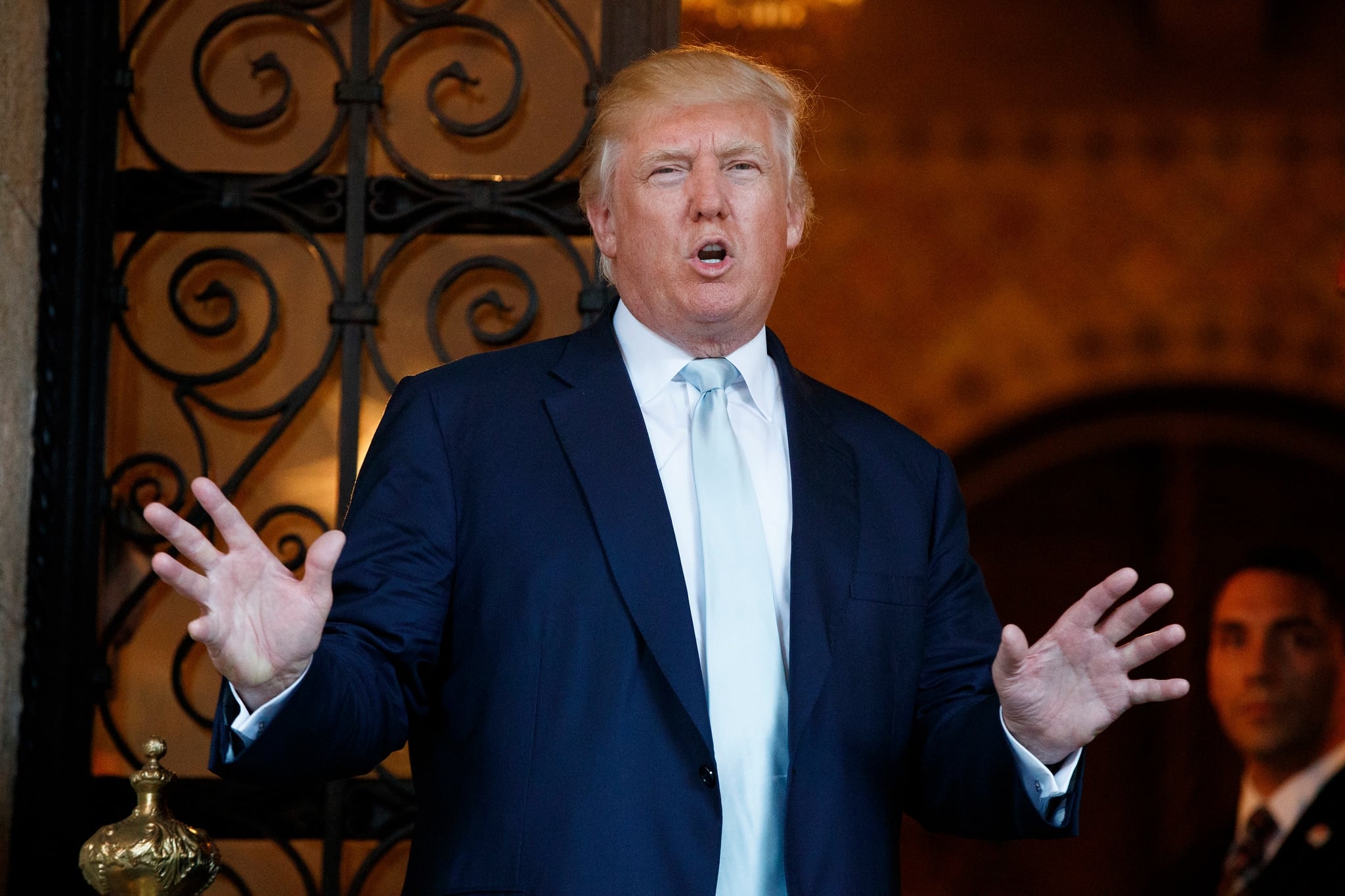WASHINGTON — President-elect Donald Trump escalated his blunt public challenge to the U.S. intelligence agencies he will soon oversee on Wednesday, appearing to embrace WikiLeaks founder Julian Assange's contention that Russia did not provide his group with the hacked Democratic emails that roiled the 2016 election.
Trump's defiance has increased the pressure on intelligence officials to provide decisive evidence of Russian election interference. A full report ordered by President Barack Obama last month is expected to be finalized by week's end, with high-level intelligence officials heading to New York Friday to brief Trump on the classified findings. The Obama administration also plans to make an unclassified version public before the president leaves office on Jan. 20.
Russia not only meddled in the election, but did so to help Trump win, according to the intelligence agencies' assessment. But the administration has so far released only limited information to support that conclusion. And in the absence of such public evidence, the president-elect has seized on some Americans' skepticism of U.S. intelligence in general, citing high-profile missteps that led to the Iraq war.
But this Trump campaign has so far been a lonely one in Washington. His views put him at odds with Obama and leaders in his own party who see Moscow as a growing threat. And they put him in line with Russian President Vladimir Putin and Assange, whose organization has been under criminal investigation for its role in classified information leaks. Since 2012, Assange has been in the Embassy of Ecuador in London, unable to leave without being arrested for breaching his bail conditions.
Taking to Twitter on Wednesday, Trump noted that Assange "said Russians did not give him the info" — referring to the trove of emails stolen from the Democratic National Committee and John Podesta, a top aide to Democrat Hillary Clinton.
Vice President-elect Mike Pence commended Trump for his "very sincere and healthy American skepticism."
"Given some of the intelligence failures of recent years, the president-elect's made it clear to the American people that he's skeptical of conclusions from the bureaucracy, and I think the American people hear him loud and clear," Pence said after a meeting on Capitol Hill with Republican lawmakers.

In this Dec. 28, 2016 file photo, President-elect Donald Trump speaks to reporters at Mar-a-Lago in Palm Beach, Fla.
Photo Credit: Evan Vucci/AP
Trump is to be briefed on the hacking report Friday by CIA Director John Brennan, FBI Director James Comey and Director of National Intelligence James Clapper. Brennan, in an interview Tuesday with PBS NewsHour, said the report will include "what was collected, what was disclosed and what the purpose and intent of that effort was."
Clapper is testifying on Capitol Hill Thursday. But he could be limited in what he can say about the report's conclusions given that Trump — and perhaps Obama — may not have been briefed by that time.
Indisputable evidence of responsibility for hacking is difficult to come by and often technical. The information the administration has released so far does not lend itself to firm conclusions.
The most recent information has come from a joint analysis by the Homeland Security Department and the FBI that ties Russian government activities to the hacks of the DNC and others. The analysis includes a list of internet addresses identified by the administration as potentially tied to Russian hackers.
Many other addresses are untraceable. The Associated Press found at least 20 percent of the addresses had traced back to computer servers that help users browse the web anonymously, often for legitimate purposes. That web service, called Tor, was initially funded by the U.S. government and is now used prominently by activists and journalists working in hostile countries who need to keep their identities secret.
Other internet addresses released by DHS trace back to servers at several American universities, as well as tech giant Yahoo Inc. The government cautioned that the addresses weren't automatically tied to Russian malicious activity, but instead were indicators that computer security experts should investigate further.
Trump aides say that while he has received "raw data" on the Russian hacking, he is skeptical of the conclusions being drawn.
Steven Hall, a retired chief of Russia operations at the CIA, set expectations low for the public hacking report, saying agencies typically lean toward protecting intelligence-gathering techniques.
"The more information that is revealed, the more likely it is that sources and methods could be compromised, thereby limiting our ability to collect in the future," Hall said.
At the White House, press secretary Josh Earnest noted that all 17 U.S. intelligence agencies had agreed on the assessment about Russia's activities and added of Trump: "Who are you going to believe?"
"The decision he makes about that I think will have long-term consequences for the way he chooses to govern the country," Earnest said.
Indeed, Trump's challenges to the intelligence community since winning the election have been striking. The nature of the presidency gives the commander in chief discretion to decide how to respond to intelligence assessments. But any skepticism about the agencies' conclusions usually plays out privately in the Situation Room and Oval Office, not on Twitter .
Trump's posture has appeared to be driven in part by concern that evidence of Russian meddling would raise questions about the legitimacy of his election.
Sen. Lindsey Graham, R-S.C., one of his party's fiercest Russia critics, said the issue was not about the validity of the election, but "the fact that a foreign entity hacked into a political party."
"When you compromise one political party, you compromise all political parties," Graham said.
Associated Press writers Tami Abdollah, Jack Gillum Laurie Kellman, Deb Riechmann and Josh Lederman contributed to this report.
